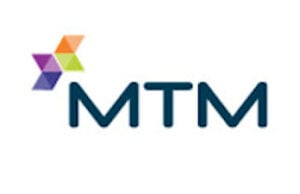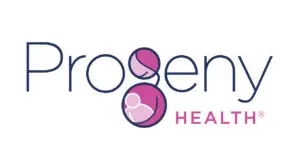MHPA's WEBINAR WEDNESDAYS SERIES
2024 WEBINARS
Leveraging Pharmacy to Improve Clinical and Cost Outcomes for Members with Complex Needs
Wednesday, May 8, 2024 | 2 p.m. ET
Implementing best practices to mitigate medication-related risks can also optimize therapy. Learn how this approach:
- Analyzes the impact of member complexity, lack of access to full medication profiles and adverse drug events (ADEs) on clinical and financial outcomes.
- Provides insight into pharmacy best-practices for members with complex, chronic medical needs—including start of care services, clinical pharmacy support, adherence interventions and technology to mitigate safety risks.
- Identifies proven results that positively impact member adherence, mortality rates, healthcare utilization and total cost of care.
Bridging Care Gaps: Unleash the Power of Mobile Integrated Health (MIH)
Wednesday, May 1, 2024 | 2 p.m. ET
Adults who live in rural areas are 78% less likely to receive home-based medical care than those who live in larger metropolitan counties—a staggering statistic that can lead to higher ER utilization, more hospital readmissions, and increased healthcare costs. Mobile Integrated Health (MIH) is a powerful approach to healthcare that is revolutionizing the way health plans nationwide—particularly in rural communities—offer healthcare access to their members. Learn how MIH programs seamlessly integrate technology, community paramedicine, Community Health Worker resources, and community-based organizations to deliver proactive, patient-centered care. And by leveraging real-time data with an emphasis on social determinants of health (SDOH), you’ll learn how MIH programs like MTM’s identify and fill gaps in care, reduce unnecessary hospital visits, and improve overall health outcomes.
3 Behavioral Health Strategies You Can Implement Now to Improve Outcomes and Decrease Costs of Care in Marginalized Populations
Wednesday, April 17, 2024 | 2 p.m. ET
Forty percent of all adults enrolled in Medicaid experience mental illness or substance use disorder (SUD) and account for nearly half of all healthcare expenditures. Mental illness is often exacerbated by social and economic factors and individuals with severe mental illness are 2 to 3 times more likely to live in poverty, affecting their access to care. Yet, traditional outpatient behavioral healthcare often falls short in addressing the full spectrum of needs faced by many members, especially marginalized and high-cost members with social needs.
Join us to learn three innovative ways an integrated behavioral health solution has proven to help health plans:
- Reduce total costs of care for high cost members.
- Address clinical and social needs, while also improving quality measures.
- Empower members with the right tools required for long-term success.
Breaking Down Barriers of Food Insecurity - A multi-factor approach to end hunger in a small town
Wednesday, March 20, 2024 | 2 p.m. ET
2024 | 2 p.m. ET
Social Determinants of Health (SDoH) data and analytics, coupled with community-driven initiatives, have catalyzed innovative solutions to combat a hunger crisis. Through compelling storytelling and real-world examples, we will unveil the transformative power of collaboration and data-driven decision-making in tackling one of society's most pressing challenges. Join us for an insightful webinar as we delve into the complexities of addressing food insecurity in a small rural town in Appalachian Maryland and explore a multi-faceted approach to solving a hunger crisis.
How Medicaid Health Plans Can Build Collaborative Models to Address the National Maternal and Infant Health Emergency 
Wednesday, February 21, 2024 | 2 p.m. ET
The U.S. is facing a maternal and infant health emergency. Despite renewed commitments from healthcare stakeholders to stem the tide, no one entity has significantly had impact. With 40% of births in America covered by Medicaid, MHPA members play a vital leadership role. Join us for a robust discussion on how collaborative models have the potential to dramatically impact preventable maternal health risks and death, reduce preventable preterm birth, and close the health equity gap for every family. The webinar will address challenges that are driving the current maternal and infant health crisis, feature a discussion on common barriers to collaboration, and include examples of how policymakers, providers, payers, partners, and non-profits are working together to drive sustainable change.
 Sharing the Care: The Path to Better Outcomes
Sharing the Care: The Path to Better Outcomes
Wednesday, January 24, 2024 | 2 p.m. ET

